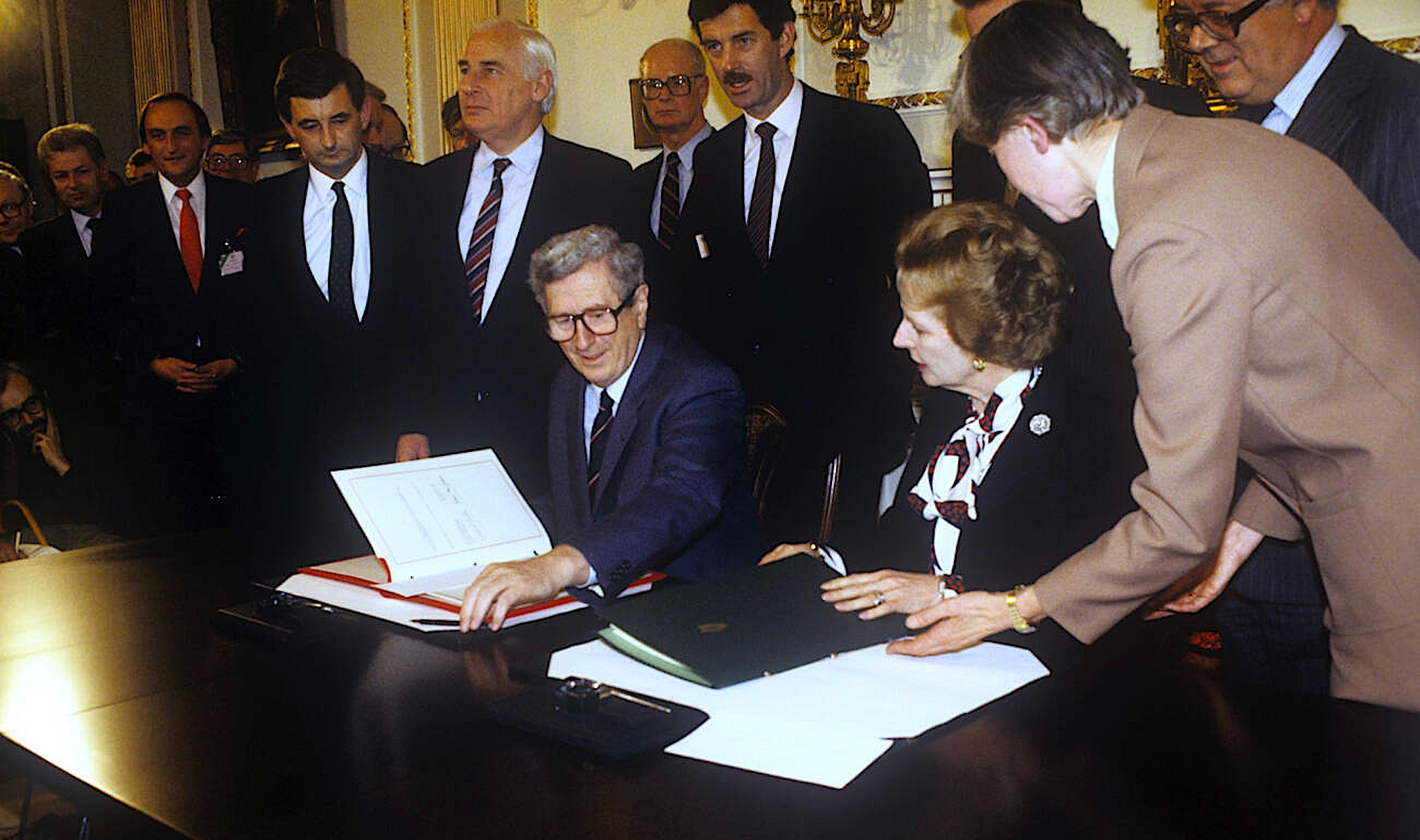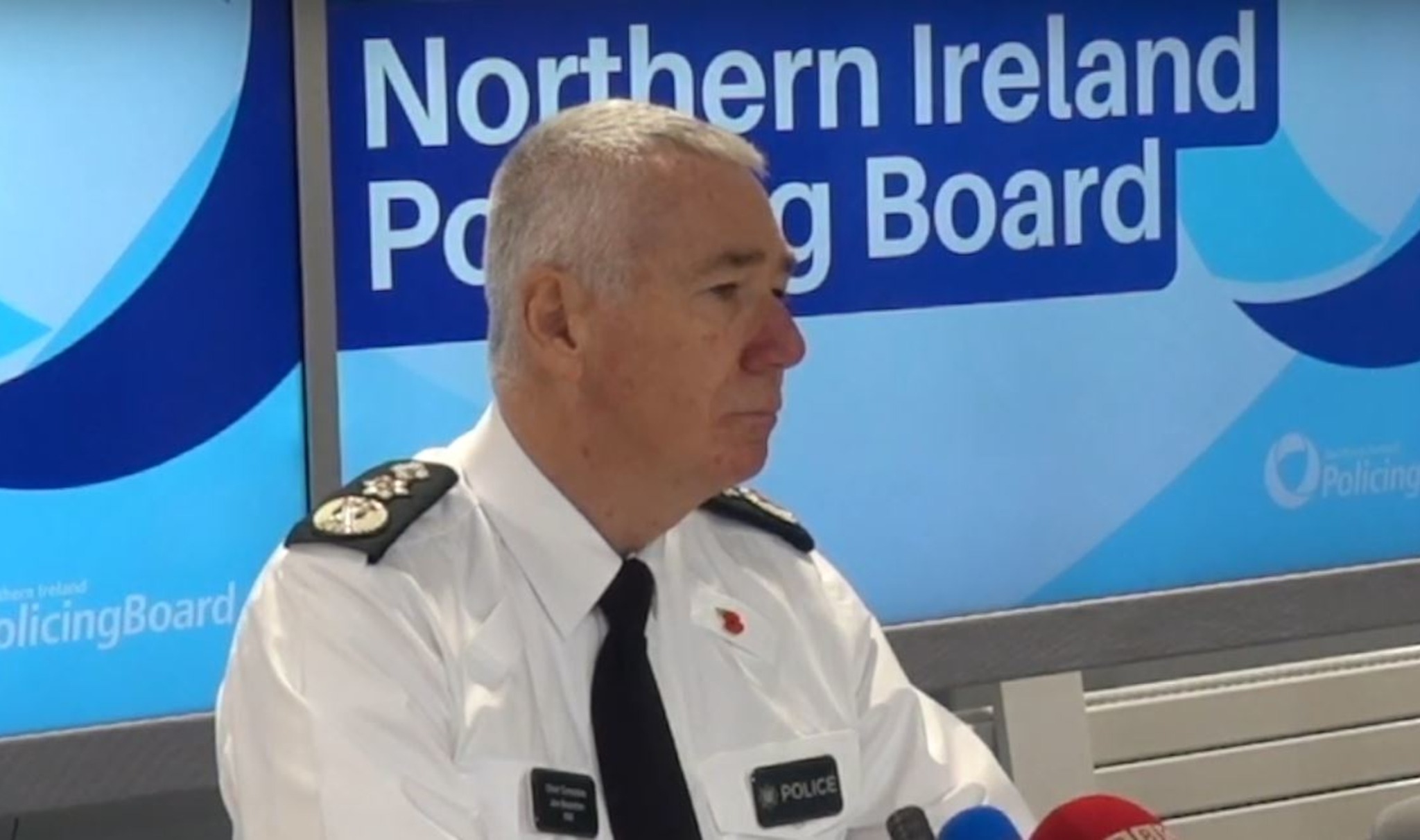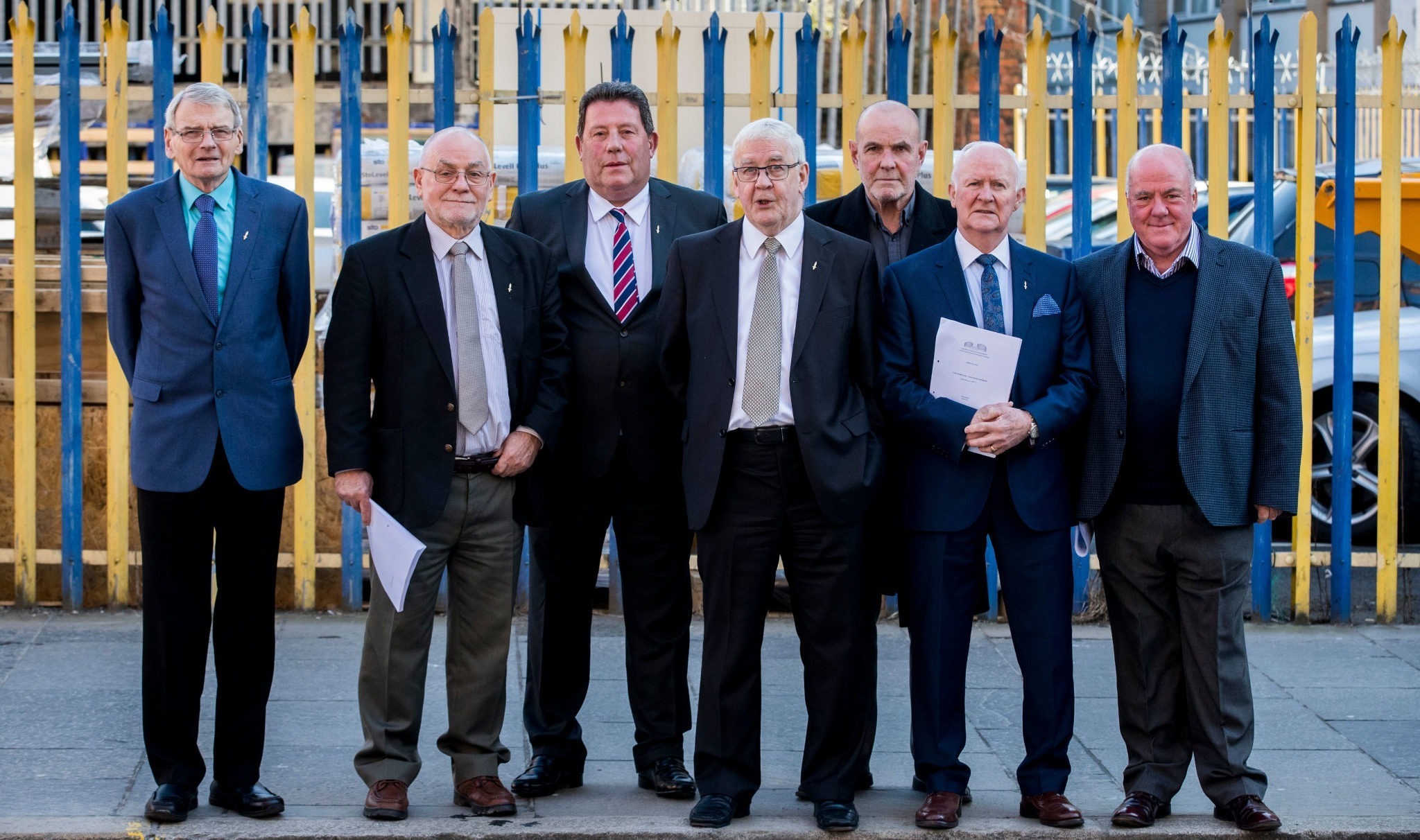The Irish government and John Hume committed themselves to accepting Northern Ireland as part of the UK in return for participation of Irish security forces in operations north of the border, declassified files show.
The files date from late 1983 and concern a proposal from John Hume, then leader of the Social Democratic Labour Party (SDLP), that would also involve Irish judges having a say in judicial processes in Northern Ireland.
The proposals, which could have amended the Irish constitution recognising Northern Ireland as part of the UK, were backed by the Irish Taoisech at the time, Garret FitzGerald.
A briefing written for prime minister Margaret Thatcher – marked “secret”— noted that the British government was “faced with a serious, if still highly tentative, approach from Dr FitzGerald aimed at bringing about a major change in terms in which both the Republic and the British Government have up to now approached the problem of Northern Ireland”.
The “central element” of this new approach “would be a bargain where the Irish government and the SDLP would commit themselves to acceptance of Northern Ireland being part of the United Kingdom (if necessary with an amendment to the Irish constitution to this effect)”.
Article 2 of the 1937 Irish Constitution then stated: “The national territory consists of the whole island of Ireland, its islands and the territorial seas.” Officials in London noted that it “might be necessary to amend the Irish Constitution in this respect, and that this possibility was not ruled out” by the Irish government.
The note continued that the quid pro quo would be “participation by Irish security forces in operations north of the border and the association of Irish judges with the judicial processes in Northern Ireland”.
The document added that there was “little room for doubt” that the proposal had the “personal backing back of the Taoiseach”. John Hume, who was later one of the architects of the Northern Ireland peace process, was said to be “behind” the proposal.
‘Substantial advantage’
London, meanwhile, appeared shocked that these two men would put forward such a radical proposal. One British document wondered “whether the package would enable the SDLP to survive electorally against Sinn Féin.”
It added that it could cause similar problems in the Republic: “Could any Taoisech…so abandon or water down the commitment to Irish unity without destroying himself (and his party) politically?”
However, London was clear that “the advantages for Britain of security from the Republic and the SDLP a formal and durable recognition of the Union would be substantial”.
It added that “discussion of the package could provide opportunities for us [London] to negotiate changes which would be to our positive advantage”.
The reason for the overtures from FitzGerald and Hume appear to have been the rise in popularity of Sinn Féin, a rival nationalist party. The hunger strike of 1981, in which Sinn Féin MP Bobby Sands died, had rallied support for the party.
“Politically, the overriding objective from the Republic’s point of view (and that of the SDLP) was not unification, but the restoration of stability in Northern Ireland before the SDLP were eclipsed by Sinn Féin”, one document notes.
‘Majority vote’
The documents also note that the proposal from FitzGerald and the SDLP would accept that the Stormont government would be “elected by majority vote (ie not power sharing, which it seemed clear had no future)”.
Again, the British did not understand how the SDLP could survive such concessions.
“Can the SDLP abandon the commitment to power-sharing, which has hitherto been an apparently indispensable plank in their platform without destroying the credibility of their claim to represent the nationalist minority in the North and giving the game to the Provisional Sinn Féin?”
Officials in London further wondered if such a course of action would “open the way to a complete Sinn Féin take over of the minority”.
British officials mentioned that prime minister Margaret Thatcher had “had the opportunity to reflect on the Irish initiative” and that she believed “that the chances of it leading to an increase rather than a reduction of violence are high”.
The reason given was that “if the Irish government committed themselves to acceptance of Northern Ireland being part of the United Kingdom, this could well result in an increase in IRA activity.”




